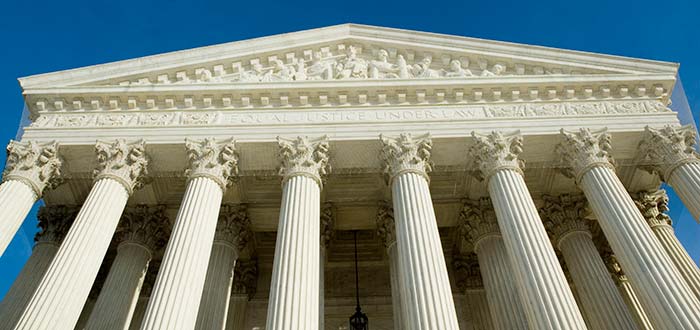Fordham Law Professor Joel Reidenberg is among eight preeminent privacy law scholars who have co-authored an amicus brief for a Supreme Court case the legal coalition says could damage American citizens’ privacy rights.
Fifteen scholars have signed the brief for Spokeo, Inc. v. Robins, a Fair Credit Reporting Act (FCRA) case that could also have “major ramifications” on other privacy laws, Reidenberg says.
The case revolves around Thomas Robins’ right as a private individual to sue Spokeo, a California-based company that publishes reports on individuals’ economic health, occupation, and wealth, for violations of the FCRA. Robins alleges false information printed online by Spokeo damaged his employment prospects, thus causing him financial and emotional harm.
Spokeo, in turn, denies it is subject to the FCRA as a consumer-reporting agency. The issue, Reidenberg explains, is whether Robins has suffered a sufficient injury that will enable him to challenge Spokeo’s interpretation of the statute.
“If the Supreme Court denies Robins the right to sue, the Fair Credit Reporting Act and most other federal privacy rights will be eviscerated and Americans will lose any means to protect their privacy in a data-hungry world,” Reidenberg says.
“A broad ruling in this case would also undermine any consumer protection law that relies on statutory damages to remedy harms to consumers.”
According to the amicus, the FCRA is essentially a bargain Congress struck between aggressive, secretive data-aggregating businesses and the public. The agreement provides businesses safe harbor from litigation if they limit disclosures and make reasonable efforts to ensure “maximum possible accuracy.” Such consumer transparency requirements were designed to encourage improvement in consumer reporting and to relieve pressure on public enforcement authorities.
“The Petitioner’s claim that Respondents cannot pursue it for its violations of the FCRA would unravel that bargain, preserving consumer reporting agencies’ broad immunity from suit while diminishing incentives to handle data fairly,” the brief argues.

